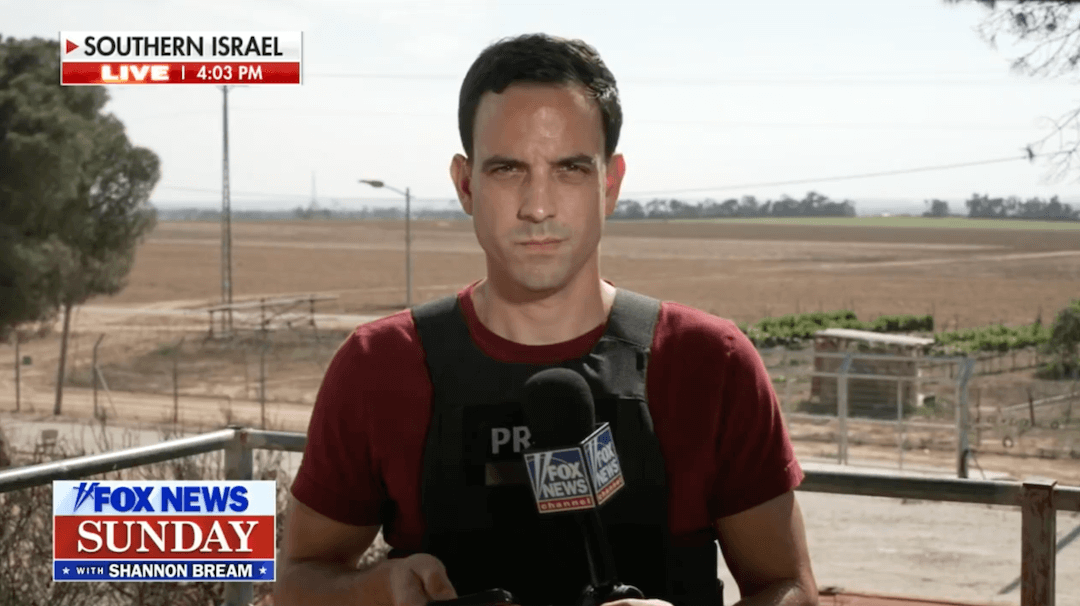The world changed on Oct. 7.
On that day, Hamas launched a surprise attack on Israel, which responded with intense bombing and a ground campaign in Gaza.
Months later, the war rages on, while journalists continue to chronicle the events — from the Middle East to college campuses in the U.S., where protests persist.
One campus especially impacted by the protests is Columbia University, where the Pulitzer Prize Board meets annually to honor the very best in journalism. But that’s not where they met last week to decide this year’s prizes. Unable to get on campus because of the protests, the board shifted its selection meetings to the New York City offices of The Associated Press.
And while this year’s winners reported and wrote about a wide array of important topics, the war was a dominant theme as the final judging was announced on Monday.
You can start with the Pulitzer Prize Board’s decision to give a Special Citation to journalists covering Gaza. The Board said in their statement, “In recent years the Pulitzer Board has issued citations honoring journalists covering wars in Ukraine and Afghanistan. This year, the Board recognizes the courageous work of journalists and media workers covering the war in Gaza. Under horrific conditions, an extraordinary number of journalists have died in the effort to tell the stories of Palestinians and others in Gaza. This war has also claimed the lives of poets and writers among the casualties. As the Pulitzer Prizes honor categories of journalism, arts, and letters, we mark the loss of invaluable records of the human experience.”
The International Federation of Journalists reports more than 100 journalists have been killed in Gaza since Oct. 7.
Meanwhile, two of the major categories — International Reporting and Breaking News Photography — went to coverage of the war. The staff of The New York Times won for International Reporting for its “wide-ranging and revelatory” coverage of Hamas’ attack in Southern Israel on Oct. 7, while Reuters won for Breaking News Photography for its “raw and urgent photographs” documenting the Oct. 7 attack.
Throughout history, the Pulitzers have often selected the important stories at that moment in history: Watergate, Vietnam, COVID-19, and so on. This moment in time is a grim one. But also a reminder of how important journalism is at these moments to help us understand our world.
Other notable winners, finalists and thoughts from Monday’s Pulitzer Prize announcements in the journalism categories:
- The New York Times and The Washington Post were the big winners, each adding three Pulitzers to their long, distinguished history. Aside from International News, the Times’ Hannah Dreier won for Investigative Reporting about migrant child labor across the U.S.; and Katie Engelhart, a contributing writer, won for Feature Writing for what happens to someone’s wishes when they slip into dementia and the decisions left to be made by their loved ones.
- The Feature Writing category was especially strong. The other finalists included Keri Blakinger, who is now with the Los Angeles Times. Blakinger once served time behind bars and has spent much of her career since then writing — extremely authoritatively and well — about the prison system. Her work at The Marshall Project (in partnership with The New York Times Magazine) writing about men on death row in Texas who play the fantasy game “Dungeons & Dragons” was superb. She has become a must-read in her field. The other finalist was The Atlantic’s Jennifer Senior, who won the Feature Writing Pulitzer in 2022 and, for my money, might be the best feature writer in the world. Her deeply personal story about her family was amazing.
- In what was my favorite selection, Vladimir Kara-Murza, a contributor for The Washington Post, won in the Commentary category. Kara-Murza puts his own life and future freedom in grave jeopardy by writing his columns from behind bars in Russia. Stunning when you think about it.
- The Post’s David E. Hoffman won for Editorial Writing. In a statement, Post Opinions editor David Shipley said, “The work by David and Vladimir rhymes. David’s editorials on viral autocracy and a new generation of political prisoners, and Vladimir’s columns on Putin’s assault on the rule of law and indelible rights in Russia, and the war in Ukraine, call essential attention to forces that diminish us all. We were honored to share their work with readers.”
- I mentioned the Post won three Pulitzers. In addition to Kara-Murza and Hoffman, the Post won in National Reporting for its sober examination of the AR-15, which has become a popular choice for those who commit mass shootings. Last year, I spoke with Post executive editor Sally Buzbee about the Post’s decision to show extremely graphic photos of mass shootings. She told me at the time, “We’re not trying to create things purely for shock value. What we really sought to do here was to show just how destructive, how profoundly devastating this type of shooting with this type of weapon is.”
- A National Reporting Pulitzer also went to the staff of Reuters for its work reporting on Elon Musk’s automobile and aerospace businesses.
- Public Service is considered the most prestigious award of the Pulitzers. This year’s Pulitzer in that category went to one of the most talked about reporting of the year as ProPublica’s Joshua Kaplan, Justin Elliott, Brett Murphy, Alex Mierjeski and Kirsten Berg wrote about a small group of politically influential billionaires who bought gifts and trips for Supreme Court justices, raising concerns that the court could be bought. It’s hard to remember a story with more buzz last year.
- It’s rare, although certainly not unprecedented, for the Explanatory Pulitzer to go to one single piece, as opposed to a series that delves into a particular topic. But that was the case this year as The New Yorker’s Sarah Stillman wrote an all-encompassing story about how the legal system relies on the felony murder charge and how that has unfairly impacted communities of color.
- Zadie Smith is best known for her books, including her 2000 debut “White Teeth.” But this year, she was a Pulitzer Prize finalist in the Criticism category for her New York Review of Books’ film review of “Tár.” The winner, however, was the Los Angeles Times’ Justin Chang for his film criticism.
- This year’s Local Reporting category relied heavily on data reporting — underappreciated, yet painstaking and important work. All the finalists were strong, but the winner was Sarah Conway of City Bureau and Trina Reynolds-Tyler of the Invisible Institute for their series on missing Black women and girls in Chicago and how systemic racism and neglect from law enforcement contributed to the issue.
- The finalists in the Breaking News category were all service-oriented work. You could make the case that nothing is more important than that in local journalism. Each of the finalists did work critically important to their communities: Honolulu Civil Beat writing about the Maui wildfires; the Los Angeles Times reporting on the Lunar New Year shooting that left 11 seniors dead; and the Lookout Santa Cruz, which won for reporting (and helping citizens) through catastrophic floods and mudslides.
- The Feature Photography prize went to The Associated Press for its coverage of the mass of migrants and their journey from Colombia to the U.S. border.
- Clay Bennett didn’t win the Pulitzer this year, but the editorial cartoonist was a finalist in the category of Illustrated Reporting and Commentary, adding to his already amazing Pulitzer resume. Bennett won the 2002 prize for Editorial Cartooning, and was a finalist in 1999, 2000, 2001, 2003, 2008 and 2013. It was nice to see him back among the finalists this year. The winner was Medar de la Cruz for The New Yorker.
- Audio Reporting is a relatively new category, first introduced in 2020. This year’s award went to the staff of the Invisible Institute and USG Audio for the podcast “You Didn’t See Nothin,” which looks back at a Chicago hate crime from the 1990s and its ripple effects.
- Finally, the Pulitzer Board had an additional Special Citation. This one went to Greg Tate, the longtime Village Voice writer who died in 2021. He focused primarily on African American music and culture, and wrote extensively about hip-hop.
- For more on the Pulitzers, check Tuesday’s “Poynter Report,” my newsletter published each weekday about the media. If you haven’t signed up, you can do so here.
More from Poynter on the 2024 Pulitzer Prizes:
- Lookout Santa Cruz, digital site with a backstory, wins Pulitzer for breaking news
- Small newsrooms won big in the 2024 Pulitzers
- The Invisible Institute won two Pulitzers this year. What is it?
- Pulitzers recognize coverage of Israel-Hamas war, honor journalists working in Gaza
- Reuters wins Pulitzer for Israel-Gaza photography
- A rare illustrated look into Rikers wins a Pulitzer
- Associated Press wins Pulitzer for documenting arduous migration journeys
- Here are the winners of the 2024 Pulitzer Prizes
- From the archives: Behind the Pulitzers: A look into the inner workings of journalism’s Super Bowl
- From the archives: How do you pronounce Pulitzer?





